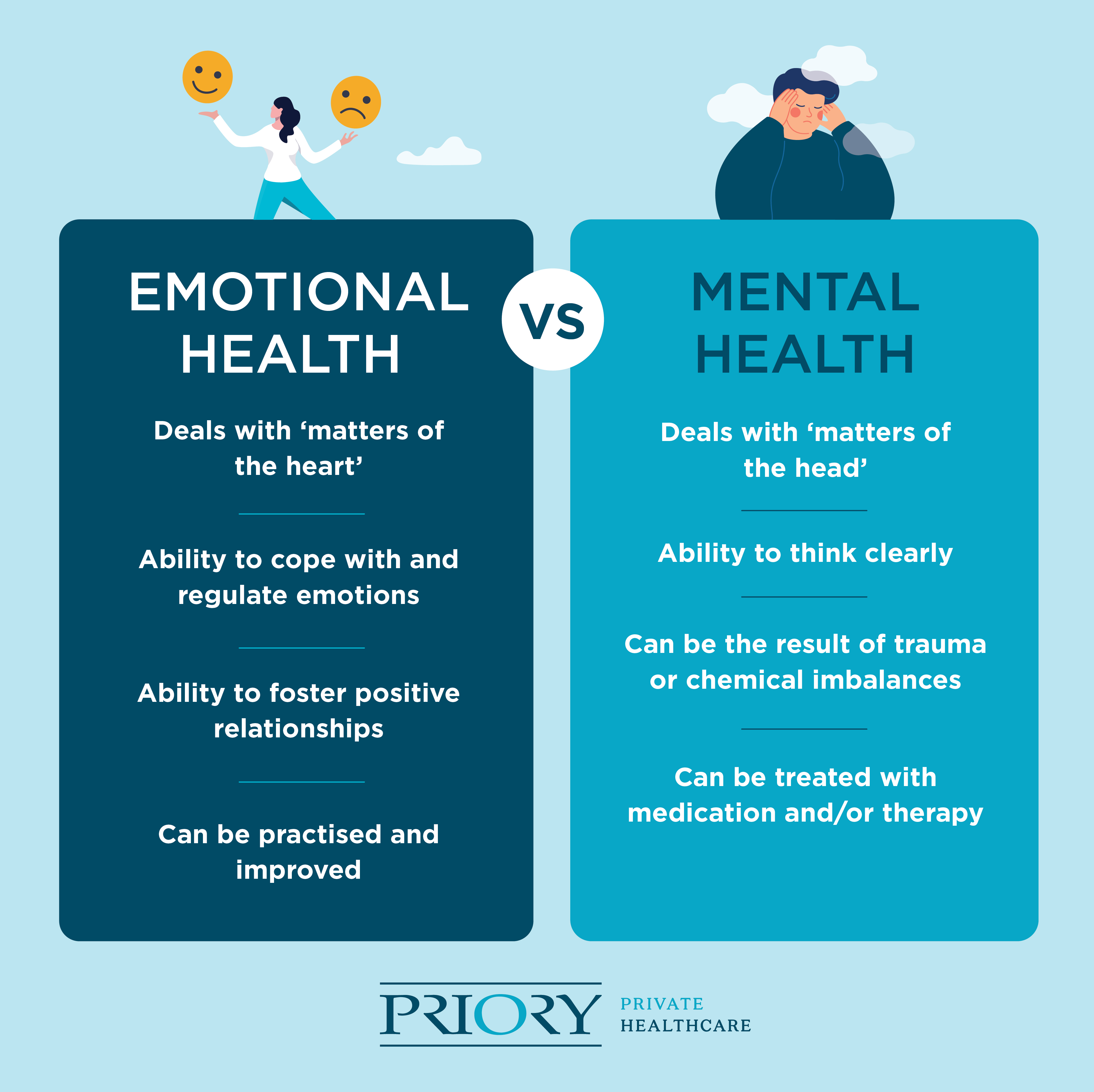Understanding emotional health and wellbeing
Find out what emotional health is and the things you can do to keep yourself emotionally healthy.
Emotional health refers to our ability to recognise and positively manage our emotions. It centres on how we think and feel, how we cope under pressure, and our ability to identify emotions in ourselves and other people.
Having good emotional health doesn’t mean you’re happy all the time, or never experience negative emotions. Rather, it means that you have the skills to manage and express your emotions in a healthy way. This means that you’re better able to be resilient, and cope with the ups and downs of life.
Good emotional health also brings greater awareness of the way you’re feeling, helping you to recognise when you might need some extra support.
The terms ‘mental health’ and ‘emotional health’ are often used interchangeably. While there's some overlap between the two, there are also some fundamental differences. The diagram below highlights the relationship between emotional health and mental health.

Emotional wellbeing is important for a number of reasons. It can help us to:
There are a number of things you can factor into your daily life, to continue building upon and improving your emotional wellbeing.
Discover some videos that can help you engage with your emotional wellbeing:
Remember, the goal of improving your emotional health isn’t about trying to be in a good mood all the time. It’s about being better equipped to deal with all moods, whenever they arise. At Priory, our expert therapists can work with you to improve your resilience and emotional health, helping you to get back on track. Call today to find out more.